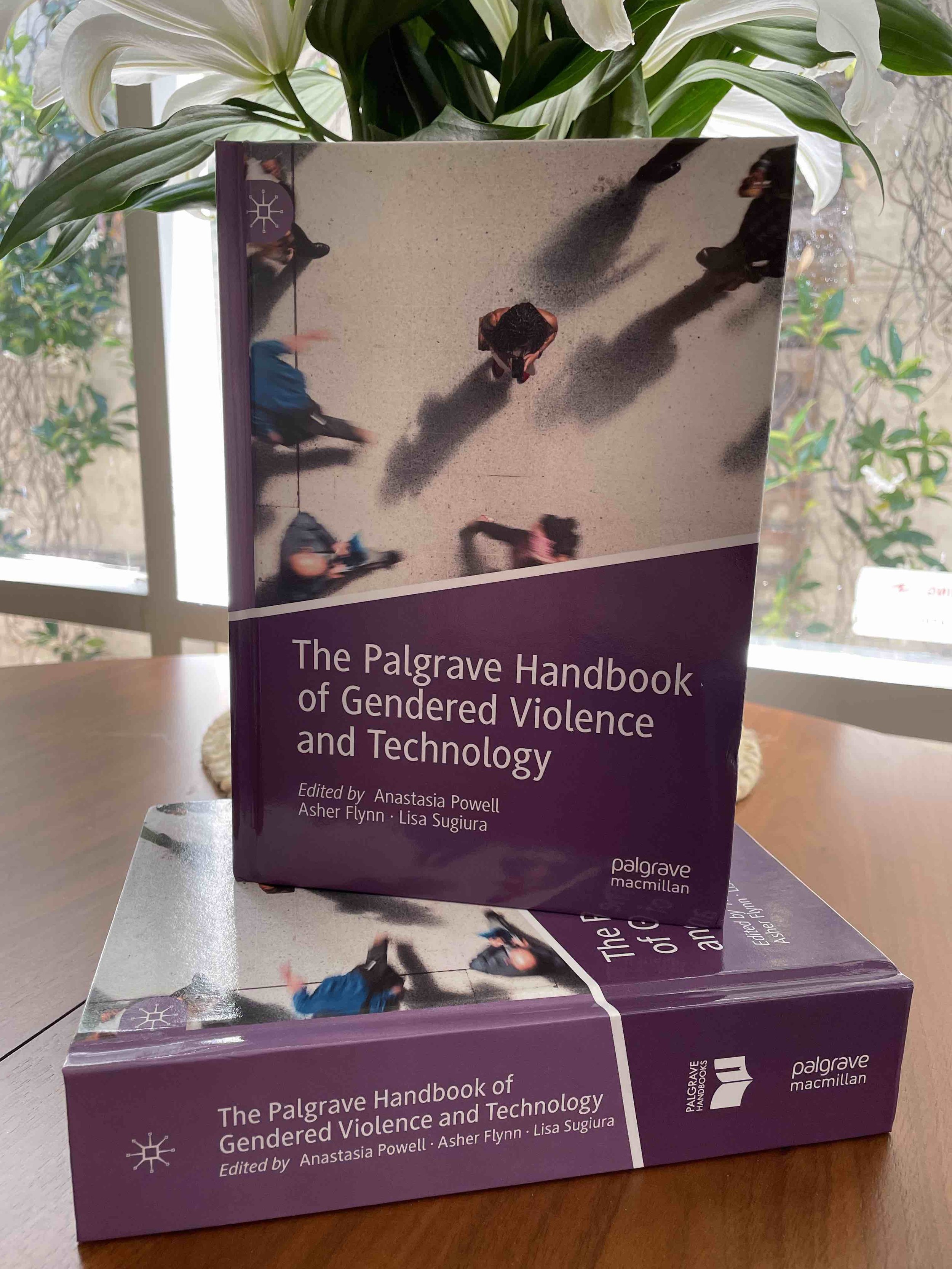[Cum]munity Standards
“Barbour’s activism – a powerful sign of resilience – is a creative response that highlights the limitations of content moderation, and the pervasiveness of online harms.”
[Cum]munity Standards is a pictorial call out blog, founded by Morgan Barbour in March 2020 in response to the uptick in unmoderated gendered online abuse at the beginning of the Covid 19 pandemic. By superimposing abusive messages received on Instagram over photos of her face, Barbour hopes to humanise the abuse and drive home that anonymous messages can have lasting real world effects.
Barbour wrote [Cum]munity Standards: Resisting Online Harassment and Abuse for the 2022 Palgrave Handbook of Gendered Violence and Technology. The project has been featured in reports on the rise of online gendered violence in wake of the pandemic by UN Women, GenderIT, World Wide Web Foundation, Power Singh Inc, DigWatch, and Association for Progressive Communications.
The Palgrave Handbook of Gendered Violence and Technology, Springer Nature 2022
This handbook provides a comprehensive treatise of the concepts and nature of technology-facilitated gendered violence and abuse, as well as legal, community and activist responses to these harms. It offers an inclusive and intersectional treatment of gendered violence including that experienced by gender, sexuality and racially diverse victim-survivors. It examines the types of gendered violence facilitated by technologies but also responses to these harms from the perspectives of victim advocates, legal analyses, organisational and community responses, as well as activism within civil society. It is unique in its recognition of the intersecting drivers of inequality and marginalisation including misogyny, racism, colonialism and homophobia. It draws together the expertise of a range of established and globally renowned scholars in the field, as well as survivor-advocate-scholars and emerging scholars, lending a combination of credibility, rigor, currency, and innovation throughout. This handbook further provides recommendations for policy and practice and will appeal to academics and students in Criminology, Criminal Justice, Law, Socio-Legal Studies, Politics, as well as Women’s and/or Gender Studies.
GenderIT Feature: [Cum]munity Standards
What I find remarkable about @CummunityStandards is that it seems to elicit a much stronger empathetic response in viewers than standalone screenshots ever did. There is something tangibly painful about looking at a photo of a woman with fucking worthless disgusting nasty fucking disease pig bitch superimposed over her body. I hope that the project will drive home the point that these words might be penned on a blank screen but they are directed at a living, breathing human being. It has proven cathartic. If Instagram is willing to let their platform be transformed into the wild west, I am going to fight back.
Abuse like this is not unique to the internet. The same year a man asked me for a pussy photo I was groped by a stranger while shopping for groceries with my mother. In drama school we were pressured to sexualise ourselves while being warned to not take it too far; one tutor pulled me aside to express concern that I had posed nude and to warn me that I may attract the wrong sort of attention, once again putting the responsibility on the would-be victim rather than the would-be abuser. It’s so strange; I have found it astonishingly easy throughout my life to not stalk someone or send them death threats or grab their body without their explicit consent. I don’t think my self-control is any better than the majority of the population, and I don’t think it is unreasonable to expect to go about my day to day life, in both the real and the digital worlds, without being pelted by abuse.
Geneva Internet Platform DigWatch
The UN Special Rapporteur on violence against women, Dubravka Šimonović, has called for submissions on the increase of violence against women (VAW) during the COVID-19 pandemic. The latest UN Women report suggests the increase of online gender-based violence and domestic abuse. Many women and girls locked down at home are in dangerous situations, because shelters, services available, and friends are now even harder to reach out to. The World Web Foundation warns about a ‘pandemic of online violence against women and girls’. In their submission to the UN Special Rapporteur on Violence Against Women, they offer policy recommendations that focus on the digital dimension of the crisis, emphasising that the growing trend of online violence and abuse against women ‘has accelerated during the COVID-19’. Distribution or threats of sharing non-consensual intimate images takes place also in the context of intimate partner violence. UK based Revenge Porn Helpline shows their website traffic doubled since the lockdown began. An American model, Morgan Barbour, started documenting the influx of online abuse she personally experienced since the pandemic started. Due to the COVID-19, online platforms sent default responses that since there are fewer people to review the content, they will prioritise ‘content with the most potential for harm’. ‘The first report that received this response from a platform was for a DM from a user threatening to find me, rape me, and murder me. It would seem ‘most potential for harm’ is subjective.’, said Barbour. Online violence has traumatic consequences for victim wellbeing.









